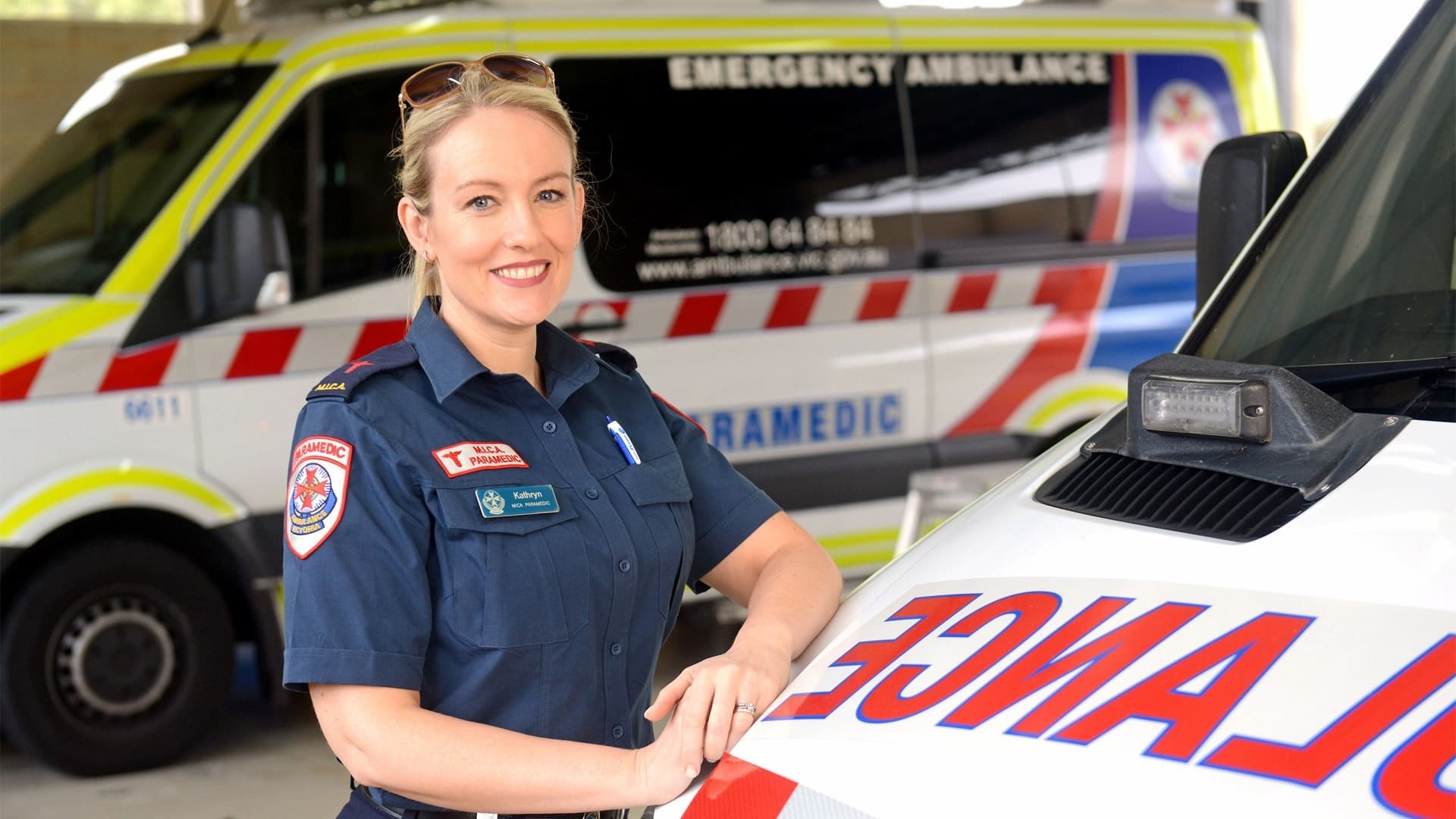
Q&A with Dr Kathryn Eastwood
Dr Kathryn Eastwood is a 2021 Postdoctoral Fellow with the Heart Foundation. She is also a Mobile Intensive Care Ambulance (MICA) paramedic with over 20 years of experience. Her research is exploring strategies to keep people who have had a heart attack or angina (chest pain) out of hospital.
What are you currently researching?
My research is investigating ambulance and hospital readmission rates in people who have had a heart attack or angina. People admitted to hospital for these conditions will often call an ambulance or return unexpectedly to hospital within 90 days after they are discharged. Currently, little is known about these unplanned ambulance and emergency department presentations and how they can be prevented. My research project will explore how often, who and why people who have had a heart attack or angina are using these emergency services. Conducting interviews with people will provide information about the gaps in care and education that may contribute to re-presentation to the ambulance service or emergency department. This research will support the development of strategies to reduce unnecessary healthcare use and to help keep people well and out of hospital
What difference will your research make to people’s cardiovascular health in Australia?
This study will explore strategies to help reduce the number of people needing to go back to hospital after experiencing a heart attack or angina. We want to help people with these conditions to recover and stay healthy by:
improving discharge planning and follow-up to reduce the risk of heart complications
understanding how emergency services are used within the 90 days following discharge
providing alternative care pathways that promote community-based care and reduce the demand on ambulance services, emergency departments and hospitals
supporting people to develop a better understanding of their own needs, self-care strategies and health promotion goals.
What motivated you to do your research?
I have worked for Ambulance Victoria as a Mobile Intensive Care Ambulance (MICA) paramedic since 2000. Chest pain is one of the most common reasons why people call for an ambulance. In my experience, people who have been discharged from hospital following a heart attack or angina are often unsure about how best to act if they notice symptoms or start to feel unwell. As a result, they may feel vulnerable and may be more likely to access emergency services. Paramedics in ambulances and doctors in emergency departments often treat people with medical conditions that may be better managed by their local doctor, dentist or allied health professional. This can mean that people who urgently need care from these services are forced to wait. My motivation to do this research is two-fold. I have an interest in reducing the demand for emergency services, as well as delivering the right care to the right people. I want to empower people who are feeling vulnerable to make the most appropriate healthcare decisions, to keep them safe and to help them continue doing the things that they enjoy.
Are there any achievements or discoveries from the past year you can share with us?
In a recent study we examined the impact of a Heart Foundation campaign to increase public awareness of the warning signs of a heart attack. We wanted to see how the campaign affected emergency department and ambulance use in Victoria. We found the campaign was associated with an increase in emergency department presentations and ambulance use, but a decrease in referrals to the emergency department by general practitioners (GPs). There was also a decrease in the number of cardiac arrests that occurred outside of hospital, which is a great result. While some of the presentations to hospital may have been unnecessary, the decrease in GP referrals and out-ofhospital cardiac arrests suggests that the campaign had a beneficial impact overall.
What role will Heart Foundation funding have in your career journey?
Heart Foundation funding will be pivotal to my research career. It will allow me to build a body of research that aims to improve the lives of people affected by a heart attack or angina. This research will help keep people out of hospital and will reduce the demand for ambulance services and emergency departments. This will mean people who most need these services can access them more easily. This funding will also allow me to apply for future research grants to translate my findings into practice.
Do you have a message for Heart Foundation supporters?
My success in obtaining this grant has been shared with pride throughout my ambulance service, and within the paramedic community. My peers can see that there are other career pathways available to them, and that they can still help people without being on the 'front-line'. I am very grateful for this opportunity, and I sincerely hope that you will see more paramedics among the applicants for future grant opportunities. I believe paramedics bring a unique perspective to heart disease research. It is such an honour to be given the opportunity to increase my impact. Instead of helping one person at a time, I now have the potential to help thousands. Helping reduce the demand for ambulance services and emergency departments can also benefit my peers, through decreased burnout rates and greater job satisfaction. It’s all about helping the people who need it most as quickly as possible.
Last updated09 January 2026